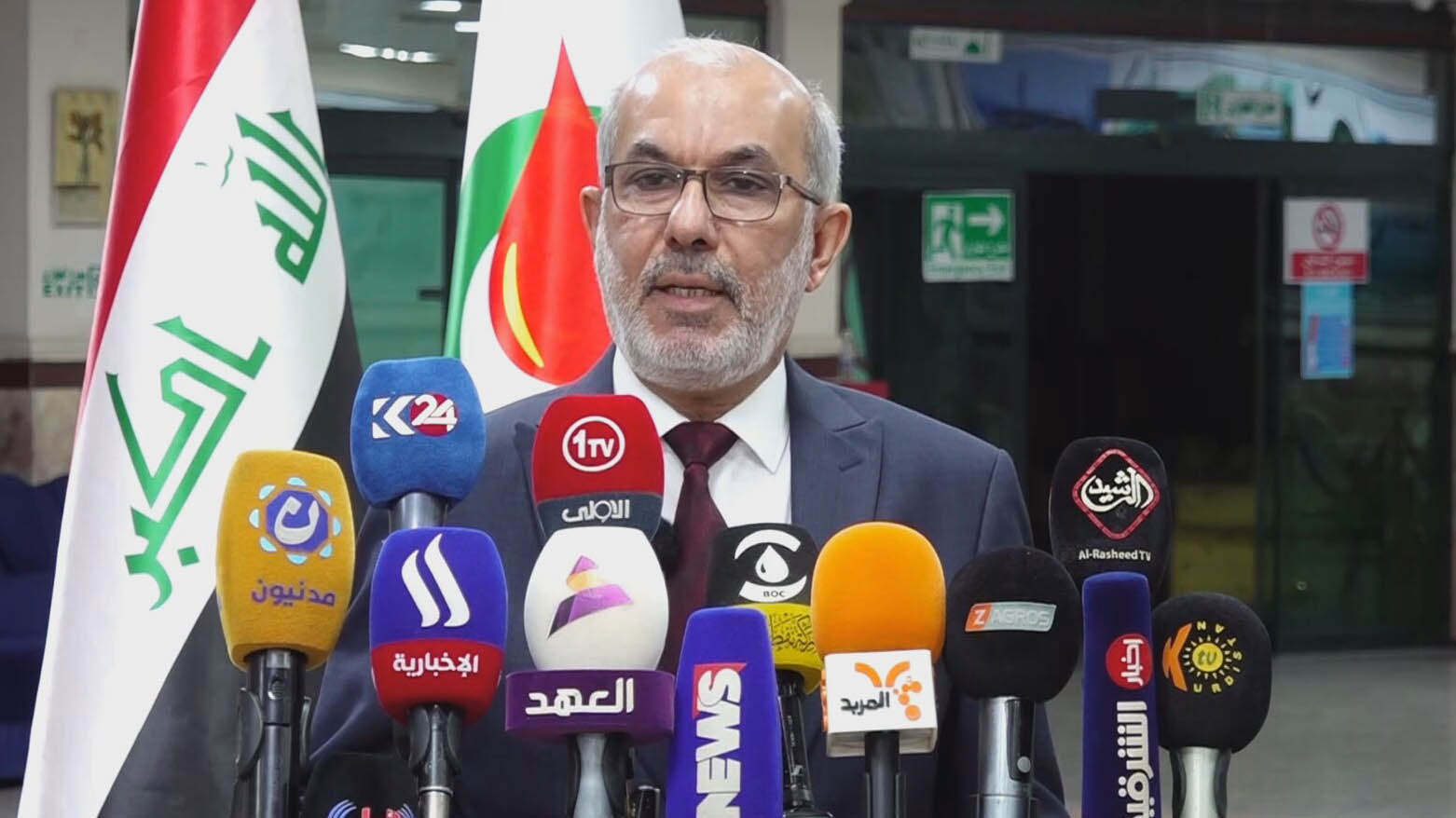Iraqi Oil Ministry Praises KRG for Role in Oil-Export Agreement
Iraqi Oil Ministry Undersecretary Basim Mohammed praised the KRG’s “cooperative and responsible” role in finalizing the oil export agreement, set to resume Saturday at 6 a.m. via the Iraq-Türkiye pipeline.

ERBIL (Kurdistan24) – The Iraqi Ministry of Oil has commended the Kurdistan Regional Government (KRG) for its constructive role in reaching the new oil export agreement, describing Erbil’s approach as responsible, cooperative, and focused on national interests. The recognition came as both sides, along with international companies, finalized arrangements to resume crude exports through the Iraq–Türkiye pipeline.
On Friday, Basim Mohammed, Undersecretary of the Federal Ministry of Oil, held a press conference in which he expressed appreciation for the KRG’s efforts in finalizing the deal. “After tremendous effort, we succeeded, through coordination with the Kurdistan Regional Government, in reaching an important agreement on resuming the Region’s oil exports,” he said.
He confirmed that as part of the agreement, Kurdistan will hand over 190,000 barrels of crude per day to Iraq’s state oil marketer SOMO, while an additional 50,000 barrels will be allocated for domestic use in the Region. Mohammed emphasized that Erbil had acted as a genuine partner, working “with foresight and as one team in the service of national interests.” He congratulated the people of both Iraq and Kurdistan on the deal, describing it as a milestone that restores cooperation between Baghdad and Erbil.
The undersecretary further revealed that exports from Kurdistan will officially resume on Saturday morning at 6:00 a.m. through the pipeline to Türkiye’s Ceyhan port. “We are confident that nothing will stand in the way of this agreement being implemented as planned,” he said, underscoring that the arrangement is in the interest of both Kurdistan and Iraq as a whole.
Mohammed also drew attention to the broader national context, noting that Iraq produces 4.3 million barrels of oil daily, of which 3.3 million are exported to global markets. Integrating Kurdish crude into this system, he stressed, would strengthen Iraq’s overall standing as a reliable energy supplier.
In parallel, Iraqi Foreign Minister Fuad Hussein also welcomed the deal, acknowledging the support of Washington in facilitating dialogue between Baghdad, Erbil, and international oil companies. “The majority of oil companies in the Kurdistan Region are American,” he said, noting that the U.S. State Department had been directly involved in negotiations. Hussein called the agreement a “crucial step” toward resolving longstanding disputes between the federal and regional governments.
The minister also emphasized Iraq’s role as a major oil state, highlighting that the country remains a global player with substantial output. “We are an oil nation, producing over four million barrels daily and exporting more than three million. The Kurdistan Region’s contribution reinforces this national strength,” he added.
The Ministry of Natural Resources in Erbil confirmed the arrangement, noting that the deal reflects consensus between the federal government, the KRG, and international oil companies. Exports are expected to restart within 48 hours, with oversight from all parties to ensure smooth implementation.
The U.S. State Department welcomed the agreement, praising the tireless efforts of Kurdistan Region Prime Minister Masrour Barzani in pushing the process forward. American officials described the deal as a breakthrough that would deliver economic stability and reinforce Iraq’s position in global energy markets.
Miles Caggins, spokesperson for the Kurdistan Oil Industry Association (Epicor), told Kurdistan24’s program Basi Roj, that international oil companies are ready to immediately resume exports. He highlighted the importance of Barzani’s leadership in the negotiations, noting: “We thank the Prime Minister for his efforts and are pleased with this significant achievement.”
Caggins also underlined that U.S. engagement was key, confirming that Washington had not only facilitated dialogue but at times also applied pressure to ensure that the agreement was finalized.
Kurdistan Region Prime Minister Masrour Barzani hailed the deal as the result of “hard work and determination by the negotiating teams on all sides,” affirming that the agreement reconnects Kurdistan’s oil fields to international markets. He stressed that this was not just a temporary breakthrough but a foundation for long-term cooperation between Erbil and Baghdad.
By aligning with the federal government and international partners, officials in Erbil believe the agreement could defuse recurring disputes over revenue sharing and salaries. For many in the Kurdistan Region, the deal is a guarantee that their rights under Iraq’s constitution will be upheld, while for Baghdad it represents a chance to strengthen fiscal stability and international credibility.